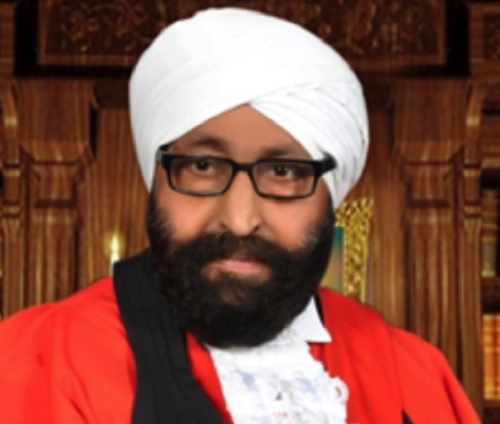
By Justice Anup Singh Choudry | OPINION
Sikhs across the UK have been campaigning with concerted efforts to ensure that they are given ethnic status. This article examines the validity of their claim.
The majority of Sikhs like myself get confused when they have to tick the ethnicity box and about 83,000 Sikhs ticked the ‘other’ category in the 2011 census as they could not identify the correct box to express their ethnicity.
Before the British annexed the Sikh Empire in 1849, the Sikh ethnicity was glaringly Punjabi. This included Pakistanis, majority of whom are Punjabis in west Punjab, Pakistan. The international boundaries of states change over a period of time due to wars, annexations or political circumstances. For example, over the past 80 years, the Bangladeshi ethnicity was originally Indian before the Indian independence and after that they became Pakistanis and are now Bangladeshis on the secession of the then East Pakistan.
The Sikh ethnicity must be looked at in that context and there should be no hesitation in affording a separate category for the Sikhs in line with Pakistanis and Bangladeshis.
The former Race Relations Act 1976 recognised the Sikh together with the Jews as a separate race. The act was subsequently merged with the Equalities Act 2010 and gives protection to the Sikhs both as a race and religion. The apex court of this country ruled in Mandla v Dowell Lee that the Sikhs are not only a race but almost a nation, not withstanding the majority of them now live under the jurisdiction of the Indian Union. This is akin to the Scottish, Irish and Welsh who are nations within the UK.
SEE ALSO: British Sikhs may get ethnicity status in census – Report
However, the concept of Sikh ethnicity is peculiar in itself since the law in this country recognises their legal identity as a race, religion and national group. It is this collective make up that validates their case for recognition as an ethnic group like the Pakistanis and Bangladeshis.
With growing number of adherents to the Sikh faith around the world, irrespective of their colour, race or nationality, the Sikh identity and ethnicity does not change because it is a cardinal principle of Sikhism that one should ‘recognise the human race as one’- Guru Gobind Singh.
A separate category for the Sikhs will bring a strong community cohesion between Sikhs and between Sikhs and non-Sikhs. The census monitors the population as well as their demography. Around 61% of Sikhs in the UK are born in this country and it is vitally important that their growing issues such as hate crimes, discrimination and alcohol addiction, as recently reported in a documentary by Victoria Derbyshire on the BBC, are seriously recognised.
The Sikh women are particularly vulnerable to domestic violence, grooming and inequality in the society.
An aggressive monitoring of this most distinguished ethnic minority justifies a separate category for them. Specific information affecting them, elicited from the census reports, will enable the central and local government, health authorities and many other organisations to target their resources more effectively and planning support to help those issues in the Sikh community in the national interest.
The government and the Office of National Statistics have taken positive steps to understand the concerns affecting this unique minority.
The writer is a retired High Court Judge in Uganda and Director of Gurbani Centre UK, a Sikh charity
RELATED STORIES:
British Sikhs may get ethnicity status in census – Report (Asia Samachar, 29 July 2018)
US issues apology after Canadian minister told to take off turban at airport (Asia Samachar, 11 May 2018)
Social Issues and Identity Threat of the Sikh Minority Community in Malaysia (Asia Samachar, 28 Dec 2015)
[ASIA SAMACHAR is an online newspaper for Sikhs / Punjabis in Asia. How to reach us: Facebook message or WhatsApp +6017-335-1399. Our email: editor@asiasamachar.com. For obituary announcements, click here]































